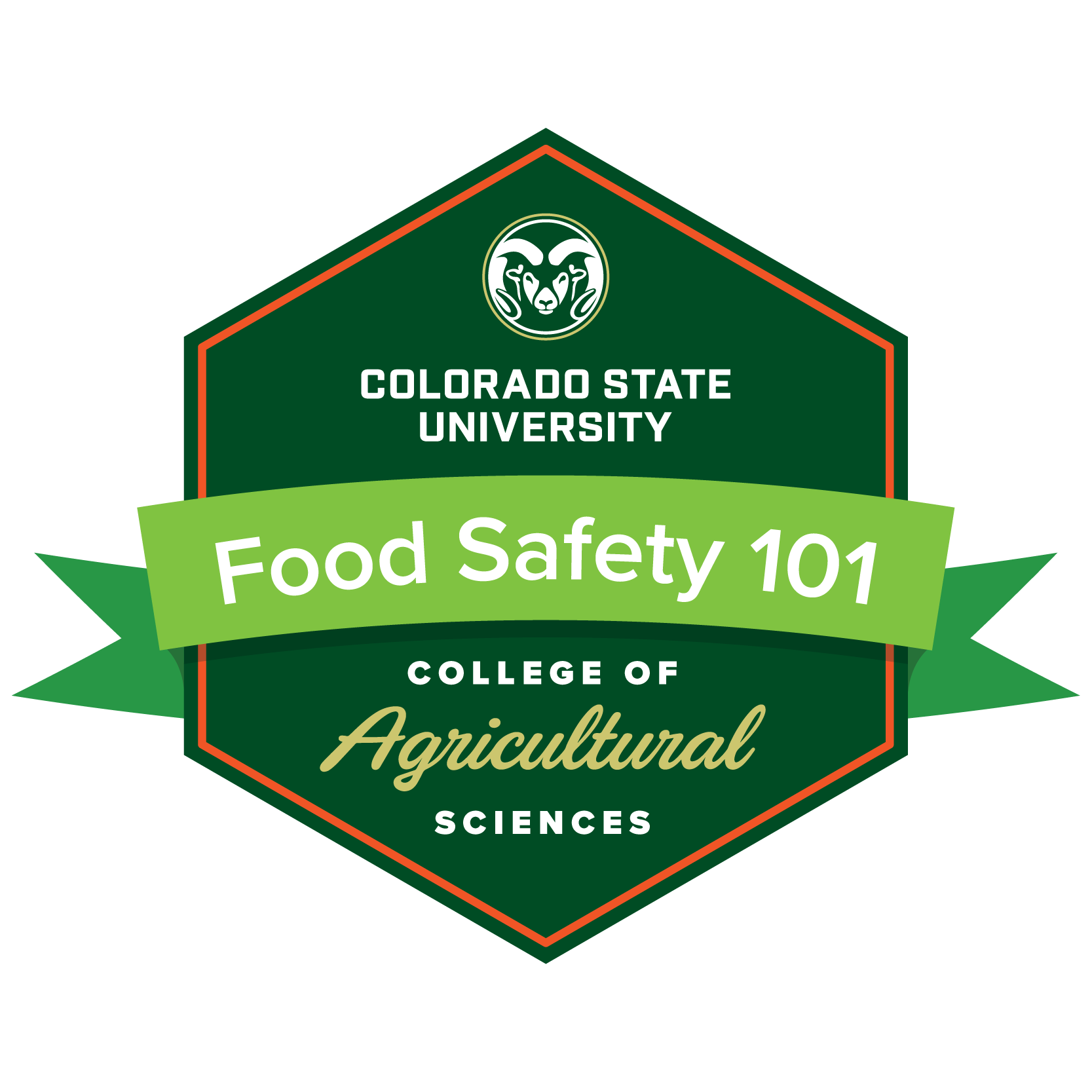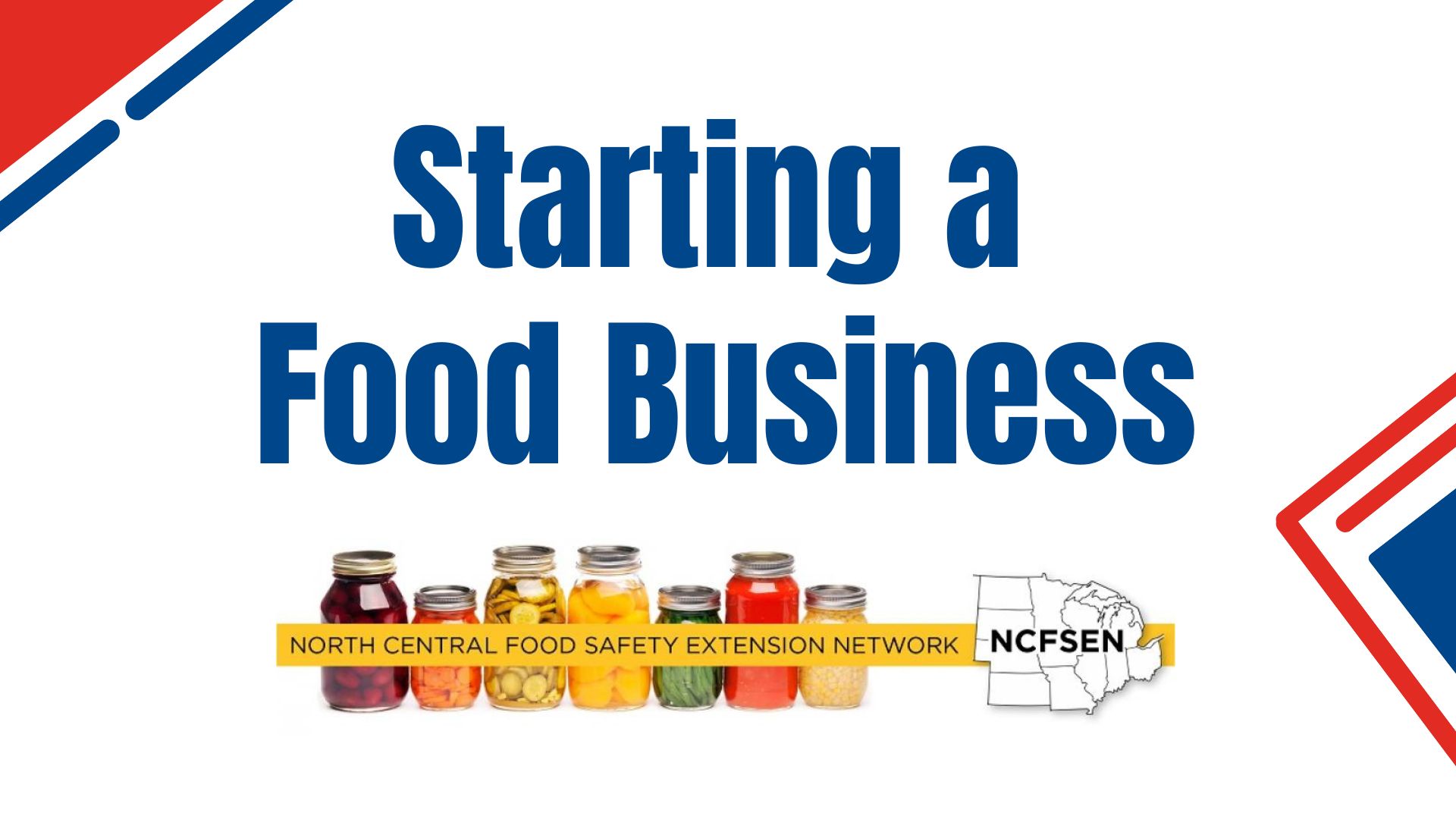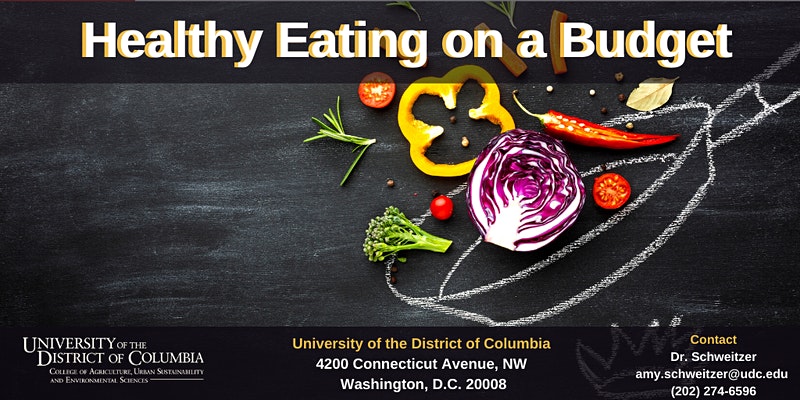Extension Foundation Online Campus
The purpose of the CFCWR Intern Training program is to provide participants with an interdisciplinary perspective of food equity in the United States and increase their understanding and competency about this issue. This program was developed and is administered by the USDA-funded Center for Food Conservation and Waste Reduction.
Curriculum Outline:
The training program is a weekly online synchronous class (~1 1/2 to 2 hours) for 9 weeks plus a post-training research project. The 9-weeks include an orientation in week 1 and recap in week 9 with the following topics weeks 2 to 7:
1. Sustainable U.S. Food System
2. Food security and social determinants of health
3. Nutrition, Disease, and Health Disparities
4. Food Equity
5. Food Waste and Conservation
6. Community organizations involved in food equity
7. Policies related to food equity
Additionally, participants will engage in a post-training research project related to household food waste or other food equity topic to earn their certificate.
Expectations:
Participants will be expected to complete weekly pre-readings, participate in Q&A during the Zoom meeting based on the weekly topics, complete a weekly reflection based on the week's topic, complete pre- and post-program and weekly session surveys,
Prerequisites:
Participants must apply to the program and be selected by the program's administrator to participate. to apply, please contact Karen Byrd, at ksbyrd@purdue.edu .
- Instructor: Karen Byrd
- Instructor: Brenna Ellison
The purpose of the CFCWR Intern Training program is to provide participants with an interdisciplinary perspective of food equity in the United States and increase their understanding and competency about this issue. This program was developed and is administered by the USDA-funded Center for Food Conservation and Waste Reduction.
Curriculum Outline:
The training program is a weekly online synchronous class (~1 1/2 to 2 hours) for 9 weeks plus a post-training research project. The 9-weeks include an orientation in week 1 and recap in week 9 with the following topics weeks 2 to 7:
1. Sustainable U.S. Food System
2. Food security and social determinants of health
3. Nutrition, Disease, and Health Disparities
4. Citizen Science
5. Food Waste and Conservation
6. Community organizations involved in food equity
7. Policies related to food equity
Additionally, participants will engage in a post-training research project related to household food waste or other food equity topic to earn their certificate.
Expectations:
Participants will be expected to complete weekly pre-readings, participate in Q&A during the Zoom meeting based on the weekly topics, complete a weekly reflection based on the week's topic, complete pre- and post-program and weekly session surveys,
Prerequisites:
Participants must apply to the program and be selected by the program's administrator to participate. to apply, please contact Karen Byrd, at ksbyrd@purdue.edu .
- Teacher: Karen Byrd
- Teacher: Brenna Ellison
This training fulfills the need for the accredited food safety training required in LB 304, part of the Nebraska Pure Food Act. This course is specific to Nebraska’s laws and may not reflect those in other states or countries.
This training has been endorsed by: The Nebraska Department of Agriculture and The Douglas County (Nebraska, United States) Health Department.
- Teacher: Cindy Brison, MS, RDN
- Teacher: David Diez
- Teacher: Kezia Huseman
- Teacher: Melinda Nolan
- Teacher: Linda Reddish
- Teacher: Angie Rushman
- Teacher: Deborah Weitzenkamp

Pilot online course for select Colorado high schools, as part of the CSU Ag Upskilling program. This course is made available by a grant from Zoma Labs support of the SyncUp Colorado program.
Email Deana.Namuth-Covert@colostate.edu for access key code and course instructions.

- Teacher: Tamla Blunt
- Teacher: Deana Namuth-Covert
The Ohio State Occasional Quantity Cooks training helps extension volunteers prepare as they plan for, prepare and deliver food for a one-time event in their county. They take the pre-test before they begin the class and then take the post-test at the end. A certificate of completion is generated to give to their supervisor as verification that they have completed the training.
- Teacher: Nicole Arnold
- Teacher: Jonathan Gladden
- Teacher: Kate Shumaker
This is a video-based series course. Through watching and following along with the videos, viewers will increase their knowledge about nutritional value of trout and food safety guidelines. Viewers will gain skills to engage with their children in the kitchen and at mealtime. Viewers will gain cooking skills related to cooking trout and increase confidence in their abilities to cook trout.
- Teacher: Erin Doty
- Teacher: Hannah Kindelspire
- Teacher: Annie Roe

This course includes lessons on preserving food by drying, freezing, pressure canning, and water bath canning various foods.
- Teacher: Ada Erlandson
- Teacher: Julie Garden-Robinson
This course is for child care providers. This 30-minute online class is a fun and interactive way to learn about the latest recommendations for healthy beverages for children and help child care providers meet the requirements of the California Healthy Beverages in Child Care Act (AB 2084). It includes videos, short quizzes, activities, and covers topics such as milk, types of fruit juice, drinking water, and reading a nutrition label. A professional development certificate will be provided upon completion. The course is free for child care providers located in California and available for child care providers outside of California for a $15 fee.
- Teacher: Danielle Lee
If you wish to purchase this course, please click the following button:
- Teacher: Danielle Lee

Welcome to this is interactive on-line certificate course! The 8 sessions will be guided by a licensed, registered Nutritionist. The course is designed to create Nutrition Ambassadors who promote healthy eating. Learn how to improve recipes to make them healthier. The materials, the Instructor, and other participants will help address issues that prevent healthy eating. Cooking Demonstrations are included. Recipes can be accessed in advance so that you may gather your ingredients and cook along with the Instructor. You will need to email the Instructor to gain access to the Webex meetings.
- Teacher: Andrew Carson
- Teacher: James Maiden
- Teacher: Amy Schweitzer, PhD, RD, LD
The audience for this course is Family Child Care Home Providers. This online training includes videos, short quizzes, and activities. It has two parts:
- In Part 1: What to Feed Infants, you will learn the latest recommendations on WHAT to feed infants. These are the foods and beverages that are recommended. You will review beverages such as breast milk, formula, and water, grains and proteins, fruits and vegetables, and foods to avoid such as sugar and salt.
- In Part 2: How to Feed Infants, you will learn the latest recommendations on HOW to feed infants. You will review breastfeeding, introducing solid foods, and overall healthy feeding practices.
Completion of this course provides 1.0 contact hours.
For more information or to enroll please contact dnilee@ucanr.edu.
- Teacher: Danielle Lee
The audience for this course is Family Child Care Home Providers residing outside the state of California. This online training includes videos, short quizzes, and activities. It has two parts:
- In Part 1: What to Feed Infants, you will learn the latest recommendations on WHAT to feed infants. These are the foods and beverages that are recommended. You will review beverages such as breast milk, formula, and water, grains and proteins,
fruits and vegetables, and foods to avoid such as sugar and salt.
- In Part 2: How to Feed Infants, you will learn the latest recommendations on HOW to feed infants. You will review breastfeeding, introducing solid foods, and overall healthy feeding practices.
Completion of this course provides 1.0 contact hours.
- Teacher: Danielle Lee
Esta capacitación cumple con la necesidad de tener entrenamiento acreditado de seguridad alimentaria según LB 262 (2024), como parte de la Ley de Alimentos Puros de Nebraska. Este curso aborda las leyes específicas de Nebraska y entonces quizás no refleje las leyes de otros estados o países.
Esta capacitación está respaldada por el Departamento de Agricultura de Nebraska, el Departamento de Salud del Condado de Douglas (Nebraska) y el Departamento de Salud de Lincoln y el Condado de Lancaster (Nebraska).
El costo de este curso de $25.
- Teacher: Cindy Brison, MS, RDN
- Teacher: David Diez
- Teacher: Kezia Huseman
- Teacher: Melinda Nolan
- Teacher: Linda Reddish
- Teacher: Angie Rushman
- Teacher: Deborah Weitzenkamp
Esta capacitación cumple con la necesidad de tener entrenamiento acreditado de seguridad alimentaria según LB 262 (2024), como parte de la Ley de Alimentos Puros de Nebraska. Este curso aborda las leyes específicas de Nebraska y entonces quizás no refleje las leyes de otros estados o países.
Esta capacitación está respaldada por el Departamento de Agricultura de Nebraska, el Departamento de Salud del Condado de Douglas (Nebraska) y el Departamento de Salud de Lincoln y el Condado de Lancaster (Nebraska).
El costo de este curso de $25.
- Teacher: Cindy Brison, MS, RDN
- Teacher: Kezia Huseman
- Teacher: Melinda Nolan
- Teacher: Linda Reddish
- Teacher: Angie Rushman
- Teacher: Deborah Weitzenkamp
The audience for this course is:
By taking this course, students will learn:
For more information or to enroll please contact:
- Teacher: Heidi Barker
- Teacher: Rebecca Betts
- Teacher: Suzanne Cagle
- Teacher: Faye Cragin
- Teacher: Zeanny Egea
- Teacher: michele kroll
- Teacher: Kristen Landau
- Teacher: Melissa Lee
- Teacher: Alyssa Lemmermann
- Teacher: Sara Oberle
- Teacher: Jessie Paine
- Teacher: Kenesha Reynolds
- Teacher: Bettina Sietz
- Teacher: Caitlin Wollack
- Teacher: Michael Young

Learn how to use food and exercise to prevent disease and promote health.
- Teacher: Ada Erlandson
- Teacher: Julie Garden-Robinson
In this Preserve@Home course, participants will be introduced to food safety and food preservation science, gain an understanding of the principles and science behind foodborne illnesses and food preservation methods and be able to apply these principles to safely preserve food by methods of boiling water canning, pressure canning, pickling, freezing and drying.
The next class will start in January.
For more information, contact Laura Sant, University
of Idaho Extension, at lsant@uidaho.edu
- Teacher: Mary Evans
- Teacher: Surine Greenway
- Teacher: Vicki Hayman
- Teacher: Joey Peutz
- Teacher: Deanna Poulsen
- Teacher: Amy Robertson
- Teacher: Laura Sant
- Teacher: Kari Ure
- Teacher: Grace Wittman
Este curso es para proveedores en hogares de cuidado infantil familiar. Esta capacitación en línea incluye videos, cuestionarios cortos y actividades. Tiene dos partes:
En la primera parte, usted aprenderá sobre las recomendaciones más recientes sobre QUÉ alimentos ofrecer a los infantes. Estos son los alimentos y bebidas recomendados. Repasaremos, como la leche materna, la fórmula láctea y el agua, granos, proteínas, frutas y verduras, así como los alimentos que deben evitarse, como el azúcar y la sal.
En la segunda parte, nos enfocaremos en el CÓMO alimentar a los infantes. Repasaremos la lactancia, la introducción a los alimentos sólidos y las prácticas generales de alimentación saludable. Al terminar estas dos partes, recibirá un certificado por haberlas completado.
El completer este curso proporciona 1.0 hora de contacto.
- Maestro: Danielle Lee
Este curso es para proveedores en hogares de cuidado infantil familiar. Esta capacitación en línea incluye videos, cuestionarios cortos y actividades. Tiene dos partes:
- En la Parte 1: Qué Alimentar a los Niños Pequeños, aprenderá las últimas recomendaciones sobre QUÉ alimentar a los niños pequeños. Estos son los alimentos y las bebidas que se recomiendan. Revisaremos la leche y otras bebidas, granos y proteínas, vegetales y frutas, y azúcar y sodio.
- En la Parte 2: Cómo Alimentar a los Niños Pequeños, nos centraremos en CÓMO alimentar a los niños pequeños. Revisaremos cómo evitar la asfixia, la alimentación receptiva, la frecuencia de comidas y refrigerios, las elecciones de alimentos y el entorno de alimentación.
El completer este curso proporciona 1.0 hora de contacto.
- Teacher: Danielle Lee
Este curso es para proveedores en hogares de cuidado infantil familiar. Esta capacitación en línea incluye videos, cuestionarios cortos y actividades. Tiene dos partes:
En la primera parte, usted aprenderá sobre las recomendaciones más recientes sobre QUÉ alimentos ofrecer a los infantes. Estos son los alimentos y bebidas recomendados. Repasaremos, como la leche materna, la fórmula láctea y el agua, granos, proteínas, frutas y verduras, así como los alimentos que deben evitarse, como el azúcar y la sal.
En la segunda parte, nos enfocaremos en el CÓMO alimentar a los infantes. Repasaremos la lactancia, la introducción a los alimentos sólidos y las prácticas generales de alimentación saludable. Al terminar estas dos partes, recibirá un certificado por haberlas completado.
El completer este curso proporciona 1.0 hora de contacto.
Este curso es gratis para los residentes de California. Los residentes fuera del estado necesitan pagar $15 para acceder este curso. Si desea comprar este curso, por favor haga clic en el siguiente botón.
- Teacher: Danielle Lee
Este curso es para proveedores en hogares de cuidado infantil familiar. Esta capacitación en línea incluye videos, cuestionarios cortos y actividades. Tiene dos partes:
- En la Parte 1: Qué Alimentar a los Niños Pequeños, aprenderá las últimas recomendaciones sobre QUÉ alimentar a los niños pequeños. Estos son los alimentos y las bebidas que se recomiendan. Revisaremos la leche y otras bebidas, granos y proteínas, vegetales y frutas, y azúcar y sodio.
- En la Parte 2: Cómo Alimentar a los Niños Pequeños, nos centraremos en CÓMO alimentar a los niños pequeños. Revisaremos cómo evitar la asfixia, la alimentación receptiva, la frecuencia de comidas y refrigerios, las elecciones de alimentos y el entorno de alimentación.
El completer este curso proporciona 1.0 hora de contacto.
- Teacher: Danielle Lee
The audience for this course is Family Child Care Home Providers. This online training includes videos, short quizzes, and activities. It has two parts.
- In Part 1: What to Feed Toddlers, you will learn the latest recommendations on WHAT to feed toddlers. These are the foods and beverages that are recommended. We will review milk & other beverages, grains and proteins, vegetables & fruits, and sugar & sodium.
- In Part 2: How to Feed Toddlers, we will focus on HOW to feed toddlers. We will review responsive feeding, meal & snack frequency, food choices, the feeding environment, and how to prevent choking.
Completion of this course provides 1.0 contact hours.
For more information or to enroll please contact dnilee@ucanr.edu.
- Teacher: Danielle Lee
The audience for this course is Family Child Care Home Providers for non-California residents. This online training includes videos, short quizzes, and activities. It has two parts.
- In Part 1: What to Feed Toddlers,
you will learn the latest recommendations on WHAT to feed toddlers.
These are the foods and beverages that are recommended. We will review
milk & other beverages, grains and proteins, vegetables &
fruits, and sugar & sodium.
- In Part 2: How to Feed Toddlers, we will focus on HOW to feed toddlers. We will review responsive feeding, meal & snack frequency, food choices, the feeding environment, and how to prevent choking.
Completion of this course provides 1.0 contact hours.
For more information please contact dnilee@ucanr.edu.
The fee for non-California residents is $15. To purchase and enroll, click the following button:
- Teacher: Danielle Lee
- Teacher: Zeva Cho
- Teacher: CA 4-H eXtension Tech Support
- Teacher: Anne Iaccopucci
- Teacher: Gemma Miner
